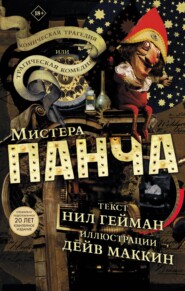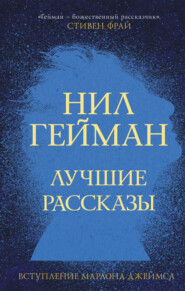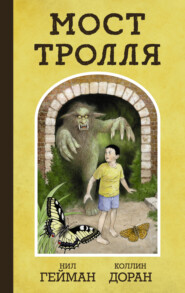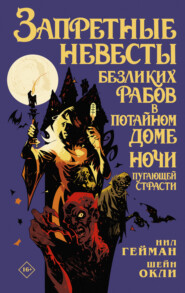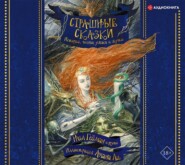По всем вопросам обращайтесь на: info@litportal.ru
(©) 2003-2024.
✖
The Complete Interworld Trilogy: Interworld; The Silver Dream; Eternity’s Wheel
Настройки чтения
Размер шрифта
Высота строк
Поля
“Give up?”
“It’s not laterality, is it?” he asked without much enthusiasm.
“Yes,” I said. “It is.”
“My turn,” said Jerzy to me. “What are subliminal isorithms, and how do they apply to Walkers?”
“I know this one,” I said. “Wait, don’t tell me . . .”
Jerzy grinned. “Don’t worry—I won’t.”
Jerzy looked much closer to me on the evolutionary highway. The main difference between humanity on Jerzy’s world and on mine was that Jerzy’s people had feathers instead of hair. Oh—and the women gave birth to eggs instead of babies. That’s probably related. It was always startling to see Jerzy coming around a corner—he had pretty much my face, a bit sharper maybe in the nose and cheekbone department, but his eyebrows were soft gray down and his “hair” consisted of colorful featherlike growths about eight inches long. The tips were bright scarlet. Jerzy was a very bright, quick, acerbic guy. He was probably the closest thing to a real friend I had in a few million Earths.
“An isorithm is something to do with how high things are, and subliminal isorithms are what allow Walkers to walk from one world to another without winding up twenty-five feet under the ground. It’s what keeps us at ground level wherever we go.”
He made a face. “Well, yes,” he said. “Sort of. But you’ll have to get closer to the wording here. Hey, did you see that, up there?”
“Where?” I hadn’t seen anything.
“Up there. High in the sky. It looked like . . . I don’t know. It looked like a bubble or something. No, it’s gone now.”
I stared up into the blue sky but saw nothing at all.
The last week had been all exams, which meant late-night cramming in addition to all the physical training during the day. The delta wave programming we got during the three or four (if we were lucky) hours of sleep we were averaging helped, but you had to supplement that with old-fashioned hitting the books if you wanted that extra edge. I’d never worked so hard—it felt like my brain was on fire. I’d wake up in the night muttering “Perpetual motion and the philosopher’s stone,” and “It’s a chthonic entity” or “underspace (aka the Static) and the Nowhere-at-All are merely facets of perception at ninety degrees to each other.” I was studying too hard. The others weren’t having it any easier.
Then, to make matters worse, I started having problems with J/O HrKr. J/O is pretty much me: I mean, he looks like me. A head smaller than me—the same height I was when I was his age. Same nose. Same freckles, even. He looked like he was around eleven and was younger than me—than most of us—and maybe that irritated him. Or part of him. He was, after all, half computer. Or, as he called it, “bionanotic entities.” Where he came from, they all were.
“Makes sense,” he told me one day, when we were doing a session in the Hazard Zone. “After all, you wear a wristwatch. So why shouldn’t I have the same information available as a retinal readout?”
I took a dive, rolled and tumbled to avoid a cluster of writhing steel cables that suddenly erupted from the floor where I stood. The cables arced toward J/O, spreading out to envelope him. J/O raised his right arm, which was covered with a layer of mesh. There was a blinding ruby light, a sound like bacon sizzling in a pan; and when my vision cleared there was nothing left of the cables but blackened stumps and the smell of ozone.
“You can wear a sundial on your head for all I care,” I told him, doing a backflip to avoid a gout of flame that jetted out of the wall. “I just don’t think it’s fair that you get to microimage the text books and put them into ROM, when we have to memorize them.”
“Your loss, flesh face,” he told me. “I got the best system: silicone and molecular spin engineering instead of proteins and nucleotides and nerve connections. Wave of the future, baby.”
Jerk. He acted as if he’d invented this stuff, instead of just coming, as he did, from a culture where they start injecting you with computers and machines the size of water molecules at birth. J/O’s Earth wasn’t a Binary satellite—yet—but it was much further advanced than the Earth I came from.
Once the exams were done—and, no, we never got to know the results, which to this day still hacks me off—we were called into the briefing room, all one hundred and ten of us juniors, and I got to see the Old Man for the first time since I took the oath in the infirmary.
He looked older.
“Welcome, ladies and gentlemen,” he said to us. “You are now all ready to begin to take part in the great struggle.
“New worlds are always being created. Some are worlds in which science holds sway”—I saw J/O hold his head up proudly—“others are worlds in which magic is the motive power. Most worlds are mixtures of the two. We of InterWorld have no problem with either ideology. Our problem is with HEX and with the Binary, who both seek to impose their belief systems and methods of reality on other worlds—sometimes through war, sometimes more subtly.
“InterWorld exists to maintain the balance. We are a guerrilla group, outnumbered and outgunned in every way. We could never directly confront either side, for we can never win. Nor do we want to win. But we can be the sugar in the gas tank, the chewing gum on the seat and the nail for want of which the kingdom was lost.
“We protect the Altiverse. We maintain a balance. That is our brief—to stem the twin tides of magic and science, to insure a mixture of both wherever we can.
“You recruits have graduated from step one of basic training, and you all have my congratulations. Well done. Tomorrow you will be split up into small teams, which will be sent on training missions. In each case, this will be just like a real field operation, except that, obviously, you will not be in any real danger. You will be visiting friendly or neutral Earths, and you will have an objective which will be attainable, if not actually easy to attain, in the time period given. You will have twenty-four hours to complete your mission and return to base.
“Each team will consist of four recruits and one more experienced operative, just in case things go wrong. Which, I hasten to add, they will not. . . .”
In the mess hall afterward, I sat with Jerzy.
“Ever get homesick?” I asked him.
“Why would I be homesick?” he asked, puzzled. “If I were not here, I would not be back in my family’s nest: I would be dead. I owe InterWorld my life.”
“Point taken,” I said, feeling envious—I was homesick all the time, sometimes to the point of actual pit-of-the-stomach pain that blipped my biosensors and puzzled the medics. I wouldn’t admit it, of course. I changed the subject. “I wonder if we’re going to be on the same team on this training exercise.”
“Why ponder and cogitate in a futile manner,” said a soft voice from behind us, “when, simply by perambulating to the bulletin board at the hindmost of the hall, full and utter discovery of all the facts may be yours.” Jai bowed his head and smiled and passed by.
“Did he say that the team assignments are already posted?” Jerzy asked me.
“I think so,” I said, and we raced each other through the hall to get to the bulletin board, which was already crowded with recruits copying down relevant information onto notepads and shouting out things like “Wah! I’m with Joliette! Better bring the garlic,” and “Hey, Jijoo. We’re on the same team tomorrow!”
Jerzy threw back his head and crowed. “I’m with the Old Man’s team!” he shouted. For the Old Man himself was actually taking out a group of four recruits. I was envious but also a little relieved that it wasn’t me: The Old Man still scared me sometimes. J/O was with the Old Man’s team, too. So was J’r’ohoho. He’s a centaur, and he let us know in no uncertain terms last week that if he hears any more “eats like a horse” lines during mess we’ll all be wearing horseshoe facial imprints. I figured the Old Man had taken the most promising candidates for his own team. I wasn’t surprised he hadn’t taken me, and I couldn’t blame him.
My team’s experienced operative was Jai, enigmatic and, as he once described himself, sesquipedalian. “Means he uses lots of long words,” said J/O, who has access to several dictionaries in his head.
There was me. There was Josef, big as a bull. There was winged Jo, who hadn’t spoken to me since that day on the rocks, but who didn’t actively ignore me either. And there was Jakon, the wolf girl. There were worse groups I could have been picked for.
Then the bell went off, and off we trooped to Practical Thaumaturgy, with lab.
The alarm went off half an hour before dawn, waking me from an uneasy dream in which my family and I had, for some dream reason, packed up and moved into the In-Between. I alternated between trying to climb the hall stairs, which had turned into an M. C. Escher etching, and listening to a lecture from Mom about how bad grades could get me eaten by demons. Mom had gone Picasso, with both eyes on one side of her nose, Jenny had turned into a wolf girl and the squid was a real squid, who lived in a cave under the sea. I was actually glad to get out of bed.
We lined up for porridge, except for the carnivorous versions of me, who had ground auroch meat, cooked or, in Jakon’s case, raw. Then we picked up our stores and assembled on the parade ground in groups of five.
Several groups were given the okay to leave, and they stepped into the In-Between and were gone.
Then the Old Man’s assistant ran out of his office and called him over. They were standing pretty near us. I heard “They can’t? Now? Well, it can’t be helped. When Upstairs calls, after all. Tell them I’ll be there.”
He turned to Jai. “You can carry an extra individual, can’t you?”
Jai nodded. He was holding the sealed orders which would take us on our training mission.
The Old Man went back to his group and told them the news. Then he pointed to various places in the parade ground.
My spirits rose; I hoped that Jerzy would be assigned to our group.
Instead J/O sauntered over. “Hey, new team,” he said. “Well, I’m ready to go. We who are about to die, and all that.”
“Do not say that, even in jest,” said Jai. He tapped me on the shoulder: I would be the team’s Walker. “Commence our intradimensional excursion.”
“What?” Jo asked.
Jai smiled. “Take us out of here,” he said.








